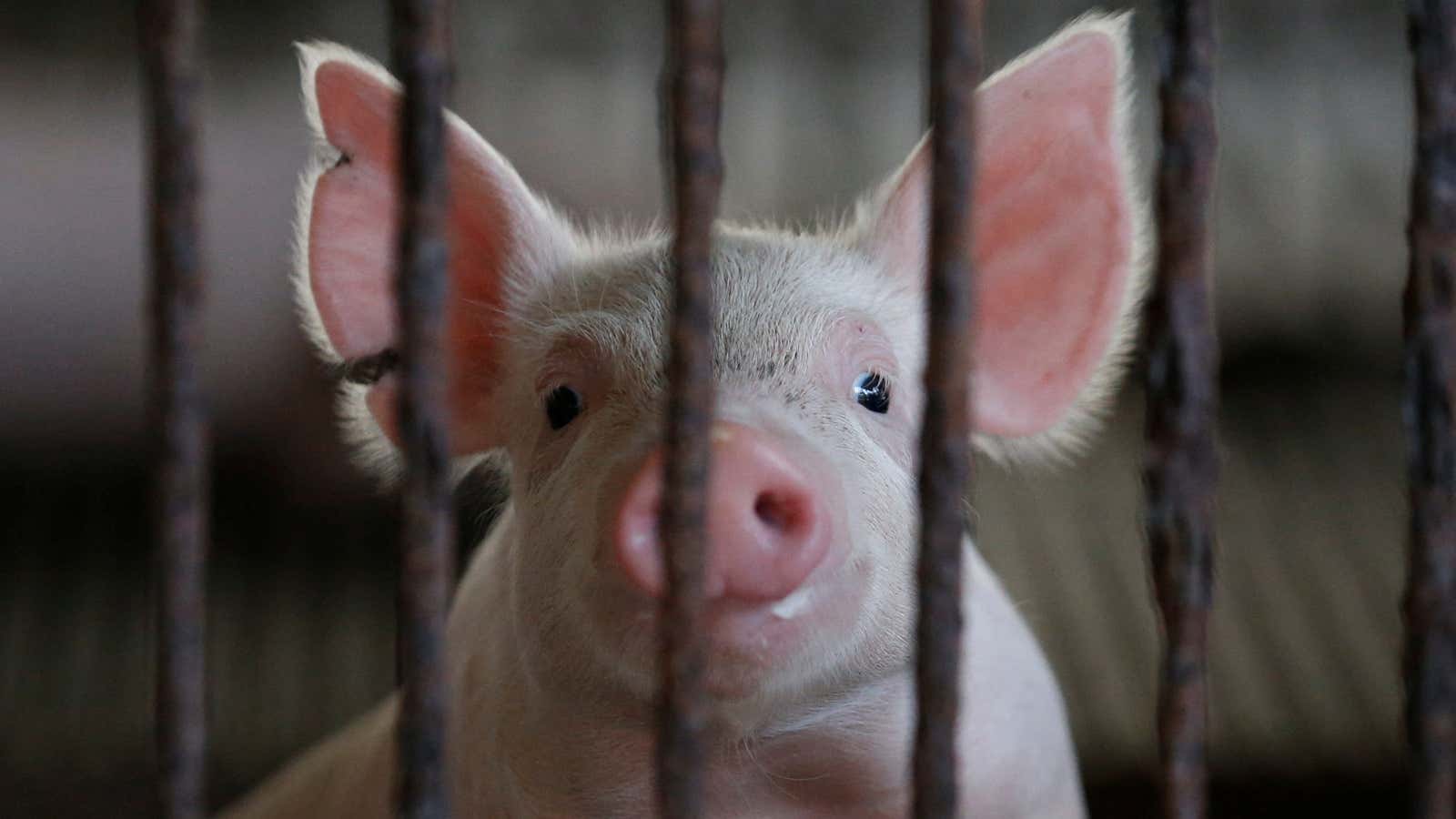Billionaire activist investor Carl Icahn’s calls for McDonald’s pig suppliers in the US to move to “crate-free pork” are nothing new.
Icahn—who bought a small stake in the company and is pushing two nominees to the board—is only asking McDonald’s to do what it promised to do 10 years ago. Back in 2012, the fast food chain said it would only work with pork suppliers who would phase out the practice, described as “obscene” by Icahn, of putting pregnant pigs in gestation crates.
McDonald’s and the US pork industry
McDonald’s says it is a relatively small player for the US pig-rearing industry, responsible for only around 1% of pork sales. The company says it does not own any of the livestock, nor does it produce and package pork.
However, according to Icahn, McDonald’s suppliers are still moving sows in crates four to six weeks into their 16-week pregnancies, regardless of whether the company has a direct stake in the production process. McDonald’s says that it is moving to crate-free production by 2024, and describes some of Icahn’s immediate demands as “impossible.”
“It does seem that McDonald’s has been rather slow in fulfilling this particular commitment made 10 years ago,” Mak Yuen Teen, a professor at NUS Business School in Singapore, told BBC News. “It’s only now that it’s accelerating the fulfillment when activists are publicly highlighting it.”
Who is Carl Icahn?
Carl Icahn, 86, is originally from Brooklyn, and is often cited as one of the first activist investors. He is worth $17 billion, according to Forbes. In the early days of the Trump administration, Icahn served as a special economic advisor. He quit because of conflicts of interest with his own businesses.
Icahn Enterprises also controls Viskase, a company that supplies packaging for the pork industry. McDonald’s says it is “noteworthy” that Icahn’s demands don’t stretch to his own firm.
The problem with gestation crates
To maximize space—and therefore profits—pork producers pack pigs into metal cages no bigger than the size of their body, at approximately 2 ft by 7 ft.
Those in favor of caging the pigs claim it helps monitor health more effectively, and prevents the animals from fighting. Some pig farmers argue moving away from the crate system would mean mortality would go up, and efficiency would go down.
However, activists contend that pigs in tiny pens are more susceptible to diseases and infections, as well as psychological ill-effects.
The US food industry’s inhumane treatment of pigs
Alongside McDonalds, a whole slew of companies in the food and beverage industry—Costco, K-Mart, Heinz, Sodexo, Kraft, Carl’s Jr, Denny’s and more (pdf)—had all set the goal of transitioning to crate-free pork production in 2012. Two months into 2022, most have not yet crossed over the finish line.
That’s not to say there has been zero progress: Grocery chain Whole Foods stopped working with suppliers who use gestation crates back in 2003. Fast-food chain Chipotle, which started weeding out the practice of sow crates 11 years before McDonalds, briefly took pork off its menu in 2015 over inhumane treatment by a major supplier. Panera says all its pigs are free of antibiotics and raised without gestation crates. Wendy’s expects to start 2022 with about 10% of its bacon and sausage being sourced via open pen or group housing, moving to 100% by year-end.
But these success stories are still anomalies. Despite public pressure, activist outrage, and state regulations, confinement is still the norm on the majority of US hog farms.
